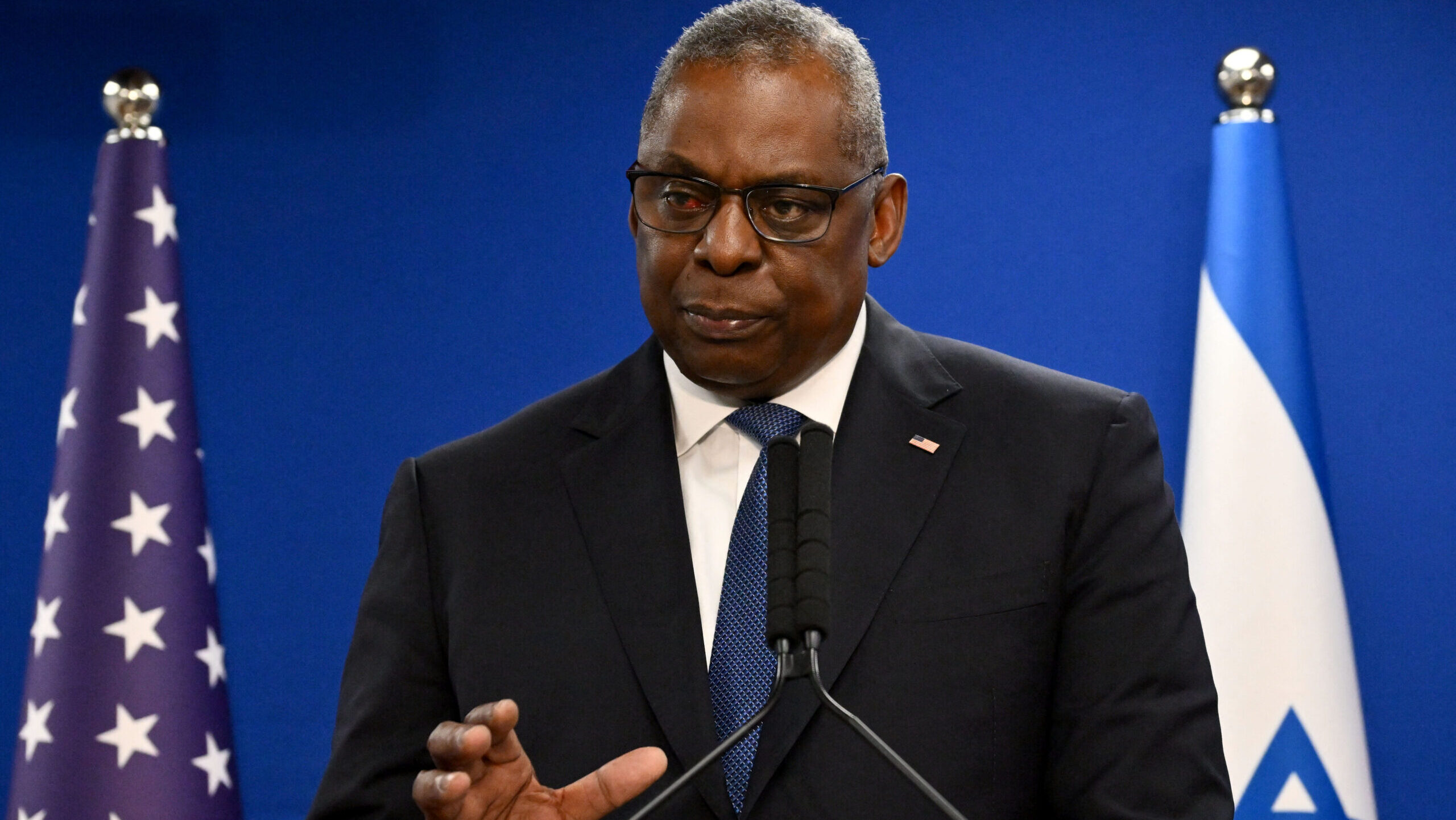Strategic Summit Unfolds as US Defense Leader Visits Israel to Chart New Course for Gaza Conflict
On Monday, United States Defense Secretary Lloyd Austin arrived in Israel to address the ongoing war in Gaza. The former four-star general sought to publicly reaffirm US support for the nation in its conflict against Hamas while urging the Israeli war cabinet to consider additional measures to protect civilian lives in the war-torn enclave. Accompanying Austin on the visit was Chairman of the Joint Chiefs of Staff, General Charles Q. Brown Jr, the the country’s highest-ranking military officer.
Austin’s visit to Israel is one of a series of high-profile visits from a rotating cast of top US officials in recent months. Last week, US National Security Adviser Jake Sullivan held meetings with Israeli military brass and war cabinet members in Jerusalem. Secretary of State Antony Blinken traveled to both Israel and the West Bank during the temporary truce of the final week of November.
Over the past week, the Israeli government has received considerable international backlash due to the rising death toll in Gaza, while major European allies have begun to publicly seek a ceasefire due to the humanitarian situation within the enclave.
During a press conference in Tel Aviv on Monday evening, Austin told reporters that his discussions with Israeli Defense Minister Yoav Gallant covered various issues related to the conflict in Gaza as well as other regional security concerns. Austin noted that he recommended his counterpart undertake necessary tactical adjustments to minimize civilian casualties and potentially begin a strategic shift away from major combat operations toward a lower-intensity campaign.
Give the gift of hope
We practice what we preach:
accurate, fearless journalism. But we can't do it alone.
- On the ground in Gaza, Syria, Israel, Egypt, Pakistan, and more
- Our program trained more than 100 journalists
- Calling out fake news and reporting real facts
- On the ground in Gaza, Syria, Israel, Egypt, Pakistan, and more
- Our program trained more than 100 journalists
- Calling out fake news and reporting real facts
Join us.
Support The Media Line. Save democracy.
Austin, who has a wealth of tangible military expertise overseeing US troops deployed in counterinsurgency operations across Iraq, Afghanistan, and Syria, told reporters that “in any campaign, there will be phases.” He stated that the US will continue to push for greater protection of civilians trapped on the battlefield, in addition to increasing shipments of humanitarian aid to the Gazan population.
For the first time since the war began, Israel allowed aid to be transported directly from Israel to Gaza through the Kerem Shalom crossing on Sunday.
Austin also fiercely reiterated that the US will not abandon Israel in its war against the “fanatical terrorist group” governing the Gaza Strip. “American support for Israel security is unshakable. Israel is not alone,” Austin said.
After the meeting, Gallant suggested that Gazans might be able to gradually return to the enclave’s north as high-intensity operations wind down. Austin also met with Prime Minister Netanyahu to discuss the future of Gaza’s security and governance. Following their meeting, Austin expressed that he believed both Israelis and Palestinians “deserve a horizon of hope,” highlighting the White House’s desire to politically reinvest in a peace process that leads to a two-state solution.
In a press statement released by the United States Department of Defense on Monday, Press Secretary Major General Pat Ryder emphasized that Austin is committed to inhibiting hostile actors from sowing chaos in the region by taking advantage of the situation in Gaza.
“Secretary Austin reiterated U.S. resolve to deter any state or non-state actor seeking to expand the conflict beyond Gaza. He shared his view that Lebanese Hezbollah forces should move away from the border with Israel and cease attacks so that Israeli communities can return to their homes,” Ryder noted, adding that the US Defense Secretary was seeking an international naval coalition to deter Houthi aggression in the Red Sea.



